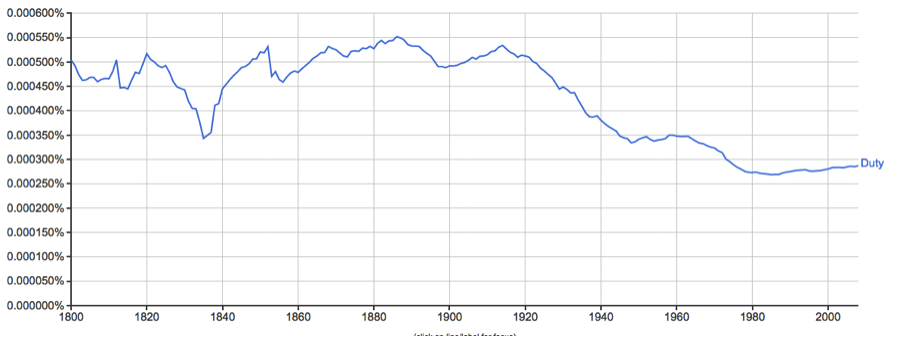Duty in All Things
“We make men without chests and expect from them virtue and enterprise. We laugh at honor and are shocked to find traitors in our midst.” -C.S. Lewis, The Abolition of Man By Paul Lagarde
If there is one idea animating Washington and Lee, it would be that of duty. Within just a few days of stepping foot on campus, new students are instilled with the notion that Washington and Lee University is theirs to shape and influence, for better or worse. In a powerful speech in Lee Chapel, the EC President reminds freshmen that if they cannot live up to the standard of honor demanded here, if they cannot answer the call that countless students did before them, then they must leave immediately. It is in the rich tradition of our student-run Honor System that we perhaps see student responsibility most noticeably illustrated. But our duty does not (and should not) stop there.
Robert E. Lee is known for saying, “Do your duty in all things. You cannot do more. You should never wish to do less.” Sadly, it appears that the concept of duty has become more foreign over time. The Google chart below illustrates how the use of the word “duty” in books peaked around 1886 and sharply declined ever since.
There could be any number of explanations for this, but I will not get into them here. I will, however, argue that the concept of duty is not only important, but central to our Washington and Lee education, and consequently, we should strive to ensure its prominence in our lives here.
It is fairly easy to see the role that duty plays in the Honor System. We have a duty to our classmates and professors to complete our assignments honestly and fairly, to not take anything that does not belong to us, and to conduct ourselves with genuine integrity in all settings. The purpose of this is two-fold: to ensure a level playing field for all, and to develop us into ladies and gentlemen.
But duty also plays a role in the Speaking Tradition. When we enter into this university, we agree to conduct ourselves with civility and decency towards all. We have a duty to our classmates to acknowledge each other, even if only by a simple nod or smile. Doing so lets others know you care about them, and for some, it may be the difference between a good day and a bad one. On a practical level, I believe nothing would improve our oft-discussed “gender relations” problem than if we all took the Speaking Tradition more seriously. Perhaps this simple expression of kindness would be more effective than recently approved multi-million dollar social engineering projects.
We also have a duty to keep each other safe. The tragic accident last December reminded us that disaster can strike at any moment. Since that time, the university has taken measures to encourage fraternities to hold parties back on campus in the actual fraternity houses. While this may lessen the risks associated with parties, it does not eliminate them. In a message to the W&L community in the aftermath of the accident, President Ruscio mentioned a “worrisome attitude among many of you that an unrestrained social life is an entitlement that requires others, such as the University, to protect you from the consequences of your ill-advised behavior.”
He added, “I often hear W&L students invoke the names of George Washington and Robert E. Lee, but too often only to rationalize the freedom to do something. If this University has one central principle to student life passed on from those individuals, it is not freedom to do whatever you wish. It is an obligation to act responsibly, and with a refined sense of duty, humility and dignity.”
And he’s right. We should not expect the University to shelter us from the consequences of foolish drunken actions. We are all adults, and we ought to be able to conduct ourselves in a responsible manner and see to it that everyone remains safe.
At the root of duty, a word Robert E. Lee called “the most sublime word in the English language,” is self-denial. In an essay titled “Lee as a Philosopher,” Professor Richard Weaver of the University of Chicago elaborated on this topic, writing:
I would not represent [Robert E.] Lee as a prophet, but as a man who stood close enough to the eternal verities to utter prophecy sometimes when he spoke. He was brought up in the old school, which places responsibility upon the individual, and not upon some abstract social agency. Sentimental humanitarianism manifestly does not speak to language of duty, but of indulgence. The notion that obligations are tyrannies, and that wants, not deserts, should be the measure of what one gets has by now shown its destructive power. We have tended to ignore the inexorable truth that rights must be earned. Fully interpreted, Lee’s “duty” is the measure whereby freedom preserves itself by acknowledging responsibility. Man, then, perfects himself by discipline, and at the heart of discipline lies self-denial. When the young mother brought an infant for Lee to bless, and was told, “Teach him to deny himself,” she was receiving perhaps the deepest insight of his life.
We are all very fortunate to be able to attend such a great university founded upon such great principles, most notably that of duty. Let us recognize that we do have a duty, to ourselves, to each other, and to this place. Let us perform that duty in our Honor System, in our Speaking Tradition, in our social gatherings, and in all things.



